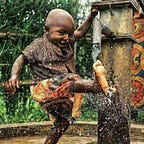Lightseekers — finding logic in mob violence.
Lightseekers sets up the story of three university students, dubbed The Okriki Three, who are victims of mob violence. The book follows the investigation that ensues from a psychologist when one of the victim’s parents is determined to find justice. Femi Kayode writes unreservedly about what it could mean for a pseudo-detective in Nigeria to solve one of the most complex crimes in the country.
A recent returnee from the United States, Dr Taiwo is an investigative psychologist who majors in mob lynching. He finds himself petitioned by both a bereaved father and his biological father to help understand the cause of the mob killing of The Okriki Three. In most cases, perpetrators of mob violence usually go unpunished. Dr Taiwo, the protagonist, is aware of this possibility as he sums up mob violence as “a unified force rallying behind a crime initiated by one, covered by all”. Nevertheless, he commits to finding the drivers of the mob killing and helping the family find a fragment of justice.
The plot is driven by the detective duo of Dr Taiwo and Chika — a quick-witted assistant, who has more to him than meets the eye. They quickly learn that this mob violence case was a pre-meditated crime by unknown entities. The duo spend the rest of the book navigating an uncooperative police force, a university intent solely on hiding their culpability, and unrepentant and hostile townsfolk in their quest to identify the culprits responsible.
A crime novel set in modern-day Nigeria is a relatively rare body of work in Nigerian Literature. Still, it is a task Femi Kayode rises up to. He is fastidious with the details as to how the protagonist discovers clues to help with the investigation. The discoveries are never outlandish, neither are the takeaways absurd. Kayode ensures that they come from deductions based on Dr Taiwo’s interviews, rigour, and asking the right questions.
A good example is when a witness meets a death shrouded in mysterious circumstances. As the duo look around the scene of the incident, the synthetic foam mattress is scrutinized. Dr Taiwo remarks, “when a synthetic material is exposed to fire, it burns quickly and keeps spreading, but here that’s not the case.” Using this piece of information, they detect that foul play supports their investigation to apprehend the culprit.
The range of alleged offences for which mobs have ended lives in Nigeria ranges from violent crimes like armed robbery and murder to misdemeanours such as petty theft, pick-pocketing, random accusations of witchcraft, blasphemy and violating religious texts. The fatal pace and unpredictability of Nigeria’s mob justice make it susceptible to abuse. Lightseekers proves this point as Kayode uses the “Aluu — 4” depressing story as inspiration for the death of The Okiriki Three to show how it can be preyed upon to attack innocent bystanders. Lightseekers shines as it delves into the aftermath of the mob violence — parents who are broken by grief, a legal system that fails to convict any perpetrator, and loss of economic activity in the affected towns.
The book focuses solely on the pursuits of Dr Taiwo and Chika, with most of the plot focusing on his interactions with other characters in the book. This ensures that the 413-page crime thriller book is unevenly centred around Dr Taiwo, leading to the absence of any complexity or understanding of the antagonist of the story. The reasons driving their actions come out as dry and rather unbelievable to orchestrate such gruesome deaths. Given the messiness of the crime and the intersections between multiple characters that Kayode sets, the conclusion to the story comes across as too neat.
Lightseekers brings to the fore a situation that has been allowed to persevere in the country. We need books like this, and we need to understand their message about how mob violence affects a wide range of lives. Lightseekers is a great-read for how the long-term effects of transient mob violence come across and the beauty of a crime thriller in a Nigerian context.
If you liked this, find another published review of Orchestra of Minorities by Chigozie Obioma.
Special thanks to Olamide Makinde for editing this piece
